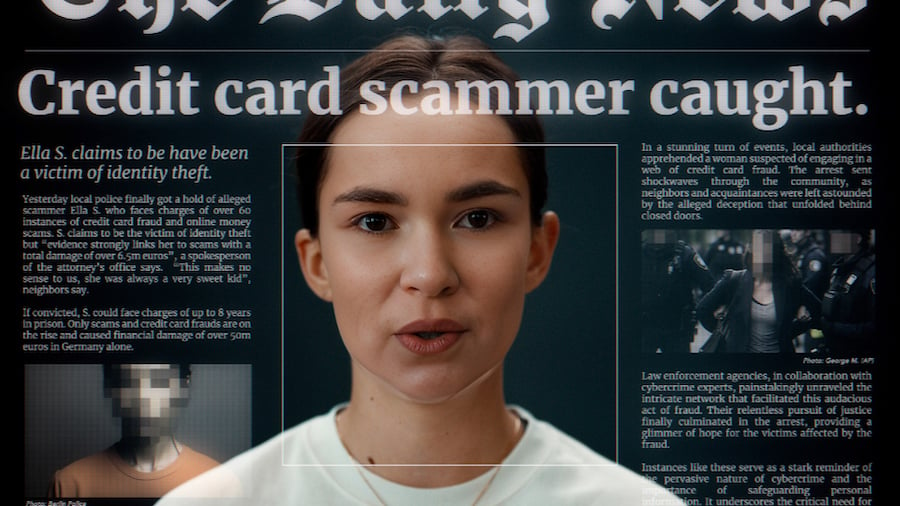The explosion of information and connections on social networks in particular and the internet in general has made many people have the habit of sharing all their emotions and events in their personal lives on the internet without anticipating the dangers of doing so. Not only posting images and videos of themselves online, many adults are also giving themselves the right to post content containing the faces or voices of children without permission. Once these images and videos appear online, anyone who has access can take them for use without any restrictions.
Last July, German network operator Deutsche Telekom released a mock advertisement showing how images of young children can be abused online, using AI (artificial intelligence) for various purposes. Titled A Message from Ella , the clip uses AI and Deepfake to create an adult version of images and videos of young Ella posted online by her parents.

'Adult Ella' created by AI from social media images of 9-year-old Ella in Deutsche Telekom's warning video
"AI Ella" can move and talk like a real person, shocking her parents when they saw their daughter on the big screen of the cinema. She can even cry and express herself just like a human.
"I know that for you, these photos are memories. But for others, they are data. And for me, they could be the beginning of a terrible, terrible future where my identity could be stolen, I could end up in jail for things I didn't do... What you share online are digital milestones that will follow me for the rest of my life," AI character Ella shared.
With just one shared photo, AI can create an adult version of a 9-year-old girl. Deepfake separates voices from videos and turns them into adult voices. Images and videos can be completely faked, personal identification data becomes valuable information stolen for illegal purposes. Not stopping there, bad guys can use images collected online to cut and paste, use AI to create child pornography or a series of photos that mock, defame, and distort the truth...
Christian Loefert, Head of Communications and Marketing at Deutsche Telekom, said: "Recent studies show that the average five-year-old has around 1,500 photos posted online without their consent, posted by none other than the person they trust the most: their mother or father."
According to The New Yorker, experts estimate that by 2030, two-thirds of identity theft will be caused by uncontrolled photo sharing on social media. Deutsche Telekom also cited a report that found that more than 75% of parents now share data about their children on social media. Meanwhile, eight out of 10 parents have social media members following their accounts without ever meeting them in person.
Recently, the development of AI tools has become increasingly "popular", reaching ordinary users through a series of applications on mobile devices. Instead of being cautious with these programs, many people carelessly provide personal or family photos to post on social networks. This action is inadvertently providing AI with a large amount of free data to learn about people, from facial structure to the surrounding environment.
Many security experts warn that in all situations, even with new trends, users should still be cautious and not trade personal data, especially their own and their loved ones' facial data, for a few minutes of fun on social networks.
Source link


































































































Comment (0)